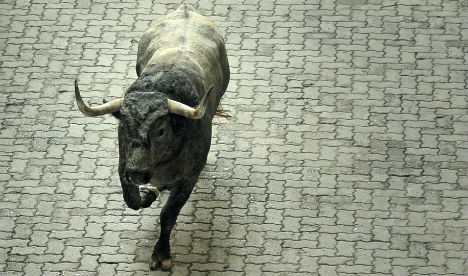The incident occurred during a bull run in the town of Cuéllar, 155 kilometres (96 miles) north of Madrid.
The 61-year-old, named as Jesús Ángel Arévalo, received “several deadly horn blows” in the chest and neck, but nothing could be done to save him, town mayor Carlos Fraile told local media.
The man was merely a spectator at the festival and did not run in front of the animal when the bulls were released, but was watching from behind a wall on the outskirts of the town, when the bull separated from the pack and turned behind the wall.
Muere un hombre de unos 70 años tras recibir una cornada en el quinto encierro de Cuéllar (Segovia) https://t.co/uTuKophiqr pic.twitter.com/V8cpuygcXw
— Europa Press (@europapress) August 29, 2019
Spain is renowned for its bull runs which are held across the country in the summer months but the encierros at Cuéllar, a medieval town two hours north of Madrid in Castilla y Leon, the activity dates back 800 years.
Cuéllar's 5km bull runs begins outside the town when the bulls are herded towards the town through pine forests and sunflower fields by riders on horseback.
Spectators gather at the outskirts of town to watch the approach and runners join the last 1.5km dash through the town's narrow cobbled streets in the fiesta that takes place each year at the end of August.
The most famous run takes place during the San Fermin festival in Pamplona in northern Spain, where thousands of people come from across to world to run at their own risk in front of bulls through the city's streets.
Eight people were gored and 35 were injured this year at the Pamplona festival, which was made famous worldwide by Ernest Hemingway's 1926 novel “The Sun Also Rises”.
At least 16 people have been killed in bull runs since records started in 1911, the last fatality was recorded in 2009.
READ MORE:
- WATCH: Man injured in Spain's 'Running of the Balls' fiesta was the mayor who tried to make it safer
- How to survive running with the bulls in Pamplona



 Please whitelist us to continue reading.
Please whitelist us to continue reading.
Member comments